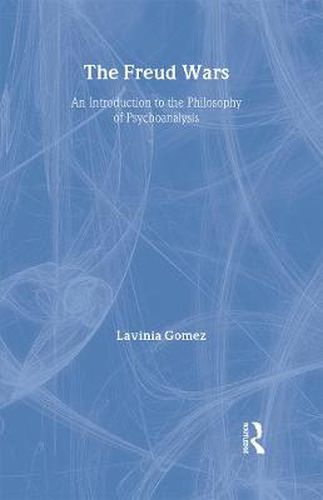Readings Newsletter
Become a Readings Member to make your shopping experience even easier.
Sign in or sign up for free!
You’re not far away from qualifying for FREE standard shipping within Australia
You’ve qualified for FREE standard shipping within Australia
The cart is loading…






How can psychoanalytic thinking be justified? The Freud Wars offers a comprehensive introduction to the crucial question of the justification of psychoanalysis. Part I examines three powerful critiques of psychoanalysis in the context of a recent controversy about its nature and legitimacy: is it a bankrupt science, an innovative science, or not a science at all but a system of interpretation? The discussion makes sense of the entrenched disagreement about the validity of psychoanalysis, and demonstrates how the disagreement is rooted in the theoretical ambiguity of the central concept of psychoanalysis, the unconscious. This ambiguity is then presented as the pathway to a new way of understanding psychoanalysis, based on a mode of thinking that precedes division into mental and physical. The reader is drawn into a lively and thought-provoking analysis of the central issues: -What would it mean for psychoanalysis to count as a science? -Is psychoanalysis a form of hermeneutics? -How can mental and physical explanations coincide? Part II contains the source material for Part I: the influential critiques of psychoanalysis by Adolf Grunbaum, Thomas Nagel and Jurgen Habermas. No specialised knowledge is assumed, and the book is clear and accessible while still conveying the complexity and richness of the subject. It provides a fascinating introduction to philosophical thinking on psychoanalysis for students and practitioners of psychoanalysis, psychotherapy and philosophy.
$9.00 standard shipping within Australia
FREE standard shipping within Australia for orders over $100.00
Express & International shipping calculated at checkout
Stock availability can be subject to change without notice. We recommend calling the shop or contacting our online team to check availability of low stock items. Please see our Shopping Online page for more details.
How can psychoanalytic thinking be justified? The Freud Wars offers a comprehensive introduction to the crucial question of the justification of psychoanalysis. Part I examines three powerful critiques of psychoanalysis in the context of a recent controversy about its nature and legitimacy: is it a bankrupt science, an innovative science, or not a science at all but a system of interpretation? The discussion makes sense of the entrenched disagreement about the validity of psychoanalysis, and demonstrates how the disagreement is rooted in the theoretical ambiguity of the central concept of psychoanalysis, the unconscious. This ambiguity is then presented as the pathway to a new way of understanding psychoanalysis, based on a mode of thinking that precedes division into mental and physical. The reader is drawn into a lively and thought-provoking analysis of the central issues: -What would it mean for psychoanalysis to count as a science? -Is psychoanalysis a form of hermeneutics? -How can mental and physical explanations coincide? Part II contains the source material for Part I: the influential critiques of psychoanalysis by Adolf Grunbaum, Thomas Nagel and Jurgen Habermas. No specialised knowledge is assumed, and the book is clear and accessible while still conveying the complexity and richness of the subject. It provides a fascinating introduction to philosophical thinking on psychoanalysis for students and practitioners of psychoanalysis, psychotherapy and philosophy.